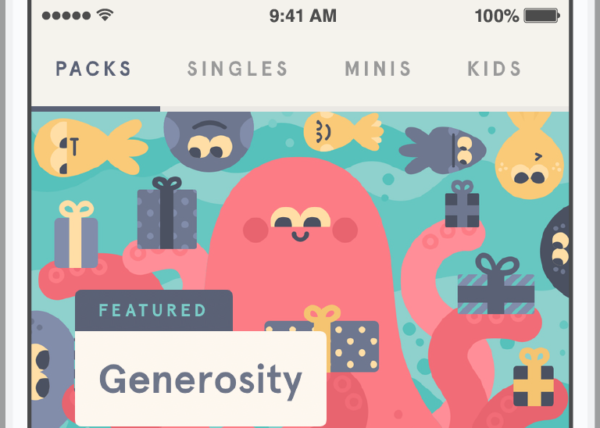
A screenshot of Headspace’s meditation app. The company raised $93 million in equity and debt in February.
Headspace, a Santa Monica-based startup that developed a meditation app, raised $93 million in equity and debt. The new cash will go toward its clinical validation efforts, as well as its business-to-business sales.
Two years ago, Headspace announced it would seek FDA approval, with the hope of becoming the first “prescription meditation” app. The company hoped to get approval for an undisclosed indication in 2020, but has not yet shared new details on its timing or the specifics of what it will pursue.
“We aren’t closing the door to seeking FDA approval in the future if that turns out to be the most viable way to cater to the unique needs of patients,” a company spokeswoman wrote in an email. “But at this time, we find that our time and resources can be best spent pursuing rigorous clinical tests and processes that will allow us to bring an effective digital therapeutic product to market that meets the specific needs of the consumers.”
Digital health startups are putting a bigger emphasis on clinical data to stand apart from other wellness apps. But despite little news on its FDA plans, Headspace said it would invest some of the new funds into its clinical efforts.
“Headspace Health is focused on providing members with the best access to the best mindfulness solution for their chronic illness – whatever path will enable us to do so safely, effectively, affordably, and efficiently, will be the one we pursue,” the spokeswoman wrote.
Headspace closed a $53 million series C round, led by blisce/, a New York-based venture capital firm created by French entrepreneur Alexandre Mars. Other new investors include Waverly Capital, Times Bridge and the Times Group of India’s global investments and partnerships arm.
In addition to that, Headspace raised $40 million in debt capital from Pacific Western Bank. The startup has raised more than $168 million to date, according to Crunchbase.
“Headspace has shown millions of people the power of using mindfulness to mitigate stress, anxiety, and other everyday issues, while continuing to advance the field through clinically-validated research,” Headspace Co-Founder and CEO Richard Pierson said in a news release. “As we think about the next ten years and beyond, we are focused on harnessing this power and applying it to other areas of our members’ lives to help them create healthy routines that last a lifetime – whether that is through our Headspace consumer app, the work we currently do with hundreds of employers, or with healthcare providers as we look to deliver better access.”
According to figures released by the company on Wednesday, Headspace has more than 2 million paid subscribers for its app and more than 600 corporate customers, including Adobe, Starbucks and GE. It currently works with 15% of Fortune 500 companies.
Headspace hopes to build out a larger share of that market with the new funding. The company said its business-to-business segment, Headspace for Work, saw its revenue double between 2018 and 2019. It is also expanding into other markets, launching versions of the app in other languages. A partnership with the Times of India will help fuel the company’s expansion in Asia.
The company also appears to still have an active role in several clinical trials. Headspace said it has conducted more than 70 clinical studies with research partners including Carnegie Mellon, the University of California San Francisco and Stanford University.
According to ClinicalTrials.gov, Headspace’s app was used in a 1,000-person randomized clinical trial sponsored by Emory University to test the effects of meditation on pain management, narcotic use and emotional well-being. The study started in 2018, and its estimated completion date is April, 2020.
The company’s app was also used in a 1,458-person trial led by the University of California San Francisco to measure meditation’s effects on work stress. Headspace was listed as a collaborator in the trial.
Photo credit: Headspace
Update: This article has been updated with comments from Headspace. The company said it would still seek FDA approval but has not shared a timeframe or what indications it will pursue.















